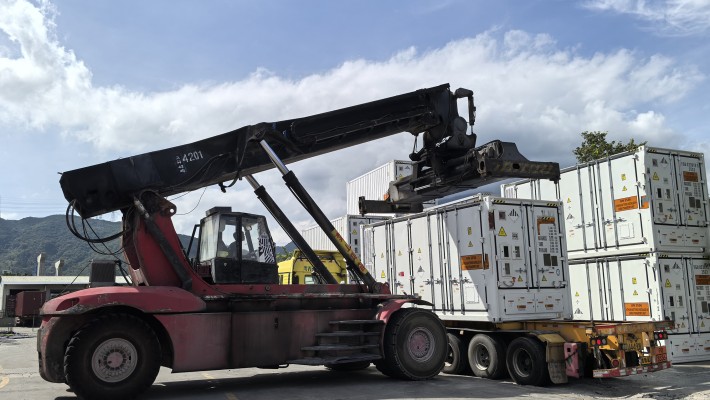Freight Forwarder Insights
Huin International Logistics Latest Articles
The Vital Role of Customs Clearance Agencies in Energy Storage Cabinet Trade
In the heart of the global shift toward renewable energy, energy storage cabinets—sturdy, high-tech enclosures packed with lithium-ion or next-gen batteries—are powering everything from urban microgrids to vast solar farms. These units, essential for storing wind and solar energy, are crossing borders at an unprecedented pace as nations race to meet net-zero goals. But moving these heavy, hazardous goods through international trade is no simple task. Enter customs clearance agencies, the unsung heroes who navigate the labyrinth of global regulations, ensuring energy storage cabinets reach their destinations without costly delays or compliance hiccups. With expertise, foresight, and a knack for untangling red tape, these agencies are the linchpin of the clean energy supply chain.
The Power Behind the Scenes: Why Customs Clearance Matters
Energy storage cabinets aren’t your average cargo. Classified as Class 9 dangerous goods under international regulations like the IMDG Code for sea freight and IATA rules for air, they demand meticulous documentation and adherence to strict safety standards. A single misstep—say, an incomplete Safety Data Sheet (SDS) or a mislabeled UN3536 package—can halt a multimillion-dollar shipment at port, delaying critical projects like grid-scale battery installations. In 2024, nearly 25% of battery-related imports faced customs delays due to improper declarations, inflating costs by up to 15%. Customs clearance agencies step in to prevent such snags, ensuring seamless import and export processes.
These agencies do more than push paperwork. They act as strategic partners, guiding manufacturers and project developers through the complexities of tariffs, trade agreements, and evolving regulations like the EU’s battery passport requirements. By streamlining clearance, they help keep renewable energy projects on schedule, whether it’s delivering cabinets from Shenzhen to Los Angeles or from Rotterdam to a Saharan solar hub.
A Day in the Life: Services That Keep Trade Flowing
Customs clearance agencies offer a tailored suite of services to handle the unique demands of energy storage cabinets. Their work begins long before a shipment reaches a border and continues until the cargo is safely delivered. Key offerings include:
- Documentation and Compliance: Agencies prepare and verify critical documents like commercial invoices, packing lists, and Certificates of Conformity. They ensure compliance with UN 38.3 testing standards for batteries, covering everything from vibration resistance to thermal stability, reducing the risk of rejections.
- Hazardous Goods Expertise: As lithium-based cabinets fall under dangerous goods regulations, agencies manage specialized declarations, such as Dangerous Goods Declarations (DGD) for sea freight or IATA Shipper’s Declarations for air. They also coordinate UN-certified packaging to prevent issues like thermal runaway.
- Tariff and Tax Navigation: From calculating import duties to leveraging trade agreements like USMCA or RCEP, agencies minimize costs. For instance, they might secure tariff exemptions for renewable energy equipment under certain green initiatives.
- Real-Time Problem Solving: When shipments face holds—say, due to port congestion or regulatory updates—agencies liaise with authorities to resolve issues swiftly, often using digital platforms for faster processing.
Companies like HUIN International Logistics, a Shenzhen-based leader, excel in these areas. With branches in Hong Kong and the U.S., HUIN has cleared over 40 billion RMB worth of new energy goods, including energy storage systems, for clients in 100+ countries. Their 2023 project clearing 100 Shippers-Owned Containers (SOC) of ESS cabinets from Yantian to Los Angeles under DDP terms showcased their prowess, handling declarations, taxes, and customs in just 26 days.
Overcoming Obstacles: Turning Challenges into Opportunities
The path to customs clearance for energy storage cabinets is fraught with challenges. Regulations vary widely—U.S. DOT rules differ from EU’s REACH requirements, and emerging policies like battery passports add complexity. Geopolitical tensions, such as trade restrictions on Chinese exports, can disrupt flows, while port bottlenecks (seen in 25% of 2025 shipments) slow progress. Misclassifying a cabinet’s HS code or underestimating duties can lead to fines or seizures.
Yet, agencies turn these hurdles into opportunities. They use AI-driven tools to predict regulatory changes and blockchain for transparent, tamper-proof documentation, cutting error rates by up to 30%. Partnerships with local customs brokers ensure region-specific expertise, while pre-filed manifests—like HUIN’s AMS/ISF filings for U.S. imports—slash clearance times. For sustainability, agencies align with green mandates, advising clients on recycling declarations for end-of-life batteries, a growing requirement in markets like the EU.
Stories of Success: Powering Projects Worldwide
Consider a 2024 case where a Texas-based solar farm needed 50 energy storage cabinets from China. A customs agency navigated U.S. hazmat regulations, secured tariff reductions under renewable energy incentives, and cleared the shipment in under a week, saving the project $200,000 in demurrage fees. Or take a European wind farm importing cabinets from South Korea: the agency’s expertise in IMO 9 compliance ensured safe sea transit, avoiding the fate of a 2023 vessel fire caused by misdeclared batteries. These stories highlight how agencies don’t just clear customs—they keep the global energy transition on track.
Looking Forward: A Bright, Connected Future
As energy storage capacity is projected to triple by 2030, customs clearance agencies will play an ever-larger role. With global trade volumes for battery systems soaring—expected to hit $58.4 billion by 2033—these experts are investing in digital tools and sustainable practices to stay ahead. From IoT for real-time shipment tracking to carbon-neutral clearance processes, they’re aligning with the green ethos of their cargo.
In the grand mission to power a cleaner world, customs clearance agencies are the quiet catalysts. They don’t just move energy storage cabinets across borders; they move progress, ensuring every watt of stored renewable energy reaches its destination. Next time a solar-powered light brightens your home, know that a customs agent helped make it happen—bridging borders to power the future.
